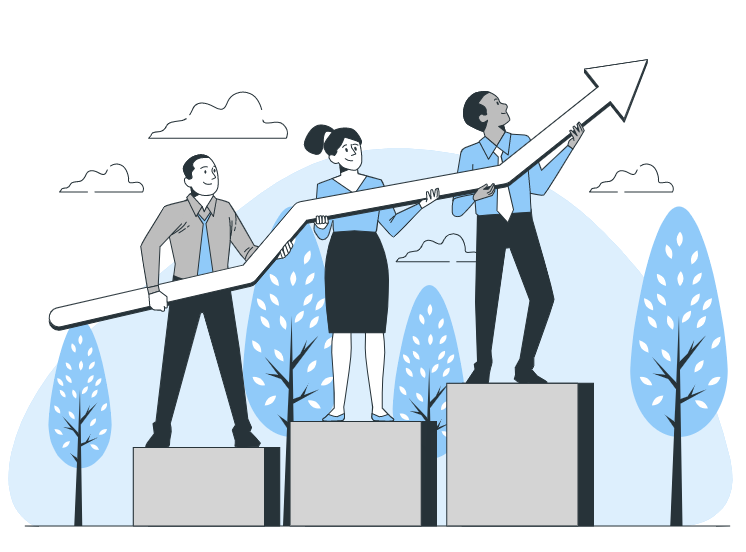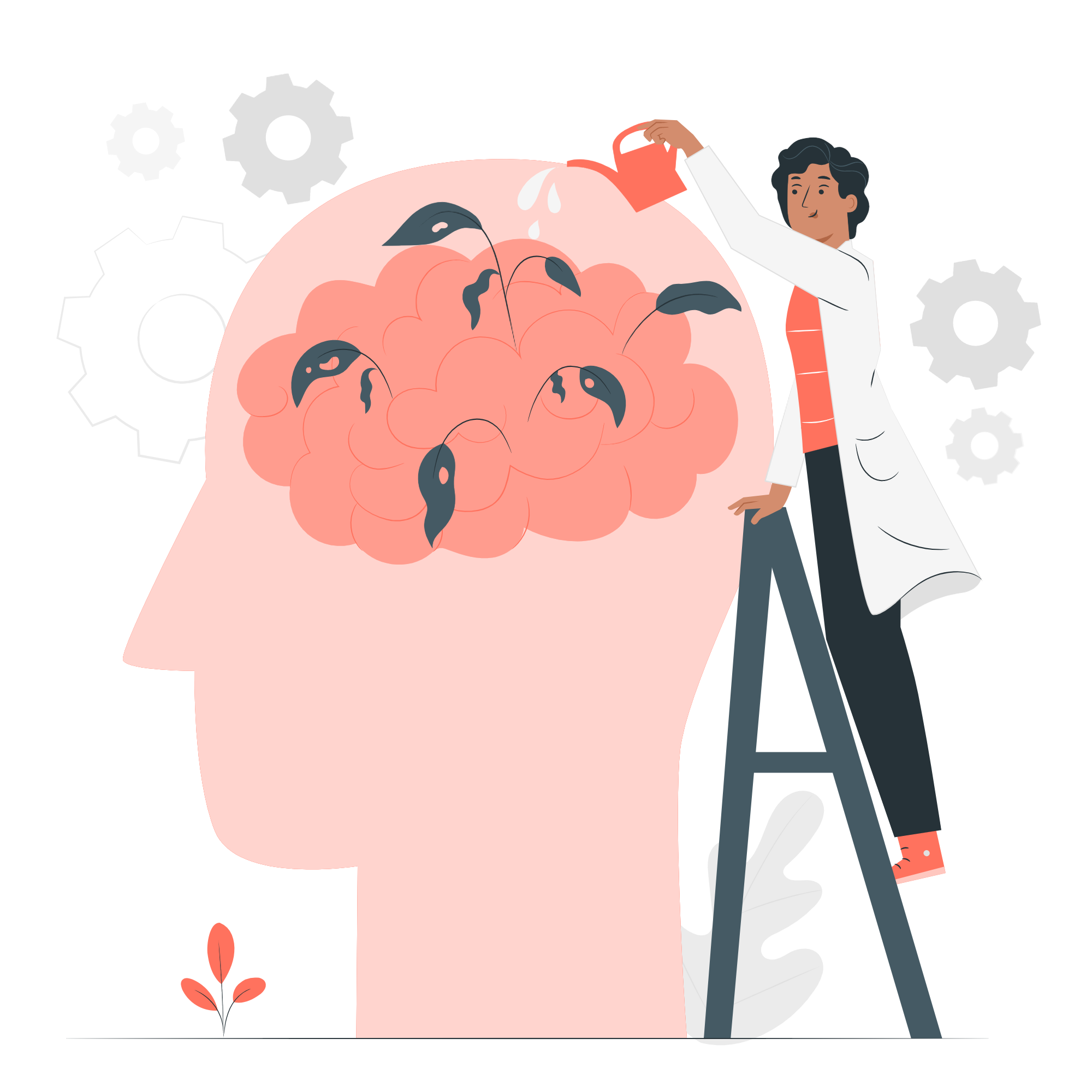Change and Transitions
ADKAR modelThe ADKAR model comprises 5 elements, each building on the previous, that are necessary for change to be effective and sustainable. Check out the useful questions that managers can use when managing change transition with their staff. LEARN MORE |
 |
Bridges' Transition ModelCheck out this infographic on William Bridges’ Transition Model that illustrates the psychological transitions that occur during times of change and what a manager can do at each stage. As an OD practitioner, you can share this infographic with your managers as a way to support them too! LEARN MORE |
 |
Creating the Ownership for ChangeOur organisations are going through continuous change and transformation. As OD practitioners, how can we engage our colleagues such that they feel that they have ownership of the change? LEARN MORE |
 |
Encountering Resistance to Change from StaffResistance is a normal reaction to change. As a manager, expecting this and taking steps to address it will allow you to effectively manage objections from staff to new initiatives. WATCH NOW |
 |
How Do I Lead Change More Effectively?Find out how a manager, can lead change for his/her staff and teams more effectively. WATCH NOW |
 |
Lessons Learnt from the BBC Culture ChangeHear from Dr Mee Yan Cheung-Judge about her insights from BBC culture change intervention, where she adopted Appreciative Inquiry approach, held the tension of the "in-between space", involved 17000 internal people in the massive change exercise, and eventually achieved the desired outcomes. LEARN MORE |
 |
Structuring Your Change Management EffortsHow might we orchestrate a successful change project in our organisations? Rhiannon Cooke highlights the key areas that practitioners should keep in mind when starting and maintaining a change project. WATCH NOW |
 |
Creating the acceptance for changeCommunicating change is an increasingly common practice in the Public Service. Take a closer look at the psychology of managing change and what we can do to foster ‘acceptance of the change’ by the affected stakeholders beyond simply 'informing' them. LEARN MORE |
 |
Deconstructing the desire for changeKickstarting the desire for change involves an intricate understanding of human behaviour and psyche. To create the desire for change, people need to first see and feel the future that the change would bring. Then, send cues of normative behaviour for people to follow. LEARN MORE |
 |
Engaging the Social Network in Spreading ChangeLittle things can make a big difference. Instead of solely targeting your change message to the masses, it will be worthwhile to tap on the invisible networks in your organisation to help you in the journey of change. LEARN MORE |
 |
Forging a change that lastsWhy do some change initiatives not reap the desired outcomes? Have we provided people with the knowledge of how to change; the ability to implement the change; and the reinforcement to sustain the change? Let's be intentional in the way we manage change, and keep ourselves updated with sound practices. LEARN MORE |
 |
Igniting awareness for changeRaising awareness of the change is the first step in introducing the change. Engage colleagues, especially the impacted ones first, informing in a clear but impactful way, how the change can impact them. Provide time for people to absorb and accept the news. LEARN MORE |
 |
Positively DeviantHave you just launched an initiative or new portal recently and found the take-up rate is not meeting your target? To address the performance gap, let's start by diagnosing the situation first, and not jump too quickly into taking action. LEARN MORE |
 |
What every Change Team should knowSetting up a change team to support the organisation in achieving alignment, commitment and effectiveness for a change project is important, but do you know how to go about setting the right conditions for it? LEARN MORE |
 |
Why Does Change Management Matter?Managing change is a critical competency for any manager who wants their teams to thrive in the VUCA environment. Learn about the purpose of change management and the factors that contribute to successful change in an organisation. WATCH NOW |
 |
Making Change Teams More EffectiveHow can a change team work effectively for an organisation's change they are tasked to lead and manage? First, do a team launch to clarify roles and expectations. As the change team forms, storms, norms and performs, choose the correct intervention that would best improve the team’s effectiveness. Finally, do team maintainence, in the form of check-ins or debriefs. LEARN MORE |
 |
What differentiates between Organisation Design, Organisation Development and Change Management?Organisation design, Organisation development and Change management are 3 different disciplines but there are areas of intersections for us to be aware of. In practice, we need to adopt a range of tools and approaches across the 3 disciplines, and apply the appropriate one for the challenge/opportunity we are intervening on. WATCH NOW |
 |
First Takeaway from Prof. Peter Hawkins’ OD/TX Clinic: Be Purpose LedCSC’s Visiting Fellow, Professor Peter Hawkins conducted an Organisation Transformation Clinic for OD and Transformation practitioners. This is the first of three key takeaways from his session. Be Purpose Led. As change practitioners, one question we can always ask ourselves is “what can our team/organisation do that is unique to our system?” There are 3 processes that organisations can adopt to incorporate purpose in our work; purpose knowledge, purpose internalisation, and purpose contribution. LEARN MORE |
 |
Second Takeaway from Prof. Peter Hawkins’ OD/TX Clinic: Partnering UpCSC’s Visiting Fellow, Professor Peter Hawkins conducted an Organisation Transformation Clinic for OD and Transformation practitioners. This is the second of three key takeaways from his session. Partnering Up. Ask ourselves, “what can we do differently to create value together?” By partnering with our employees, stakeholders, and community, we can widen the perspective that each is an opportunity for collaboration and growth. LEARN MORE |  |
Third Takeaway from Prof. Peter Hawkins’ OD/TX Clinic: Organisational LearningCSC’s Visiting Fellow, Professor Peter Hawkins conducted an Organisation Transformation Clinic for OD and Transformation practitioners. This is the last of three key takeaways from his session. Organisational Learning. In theory, OL should be greater or equal to the speed of the environment changing around us in order to meet demands for continuous growth and effectiveness. Take a look at some complementary practices that organisations with success ful L&D programmes have used. LEARN MORE |
 |
Illustrations used are from Storyset

